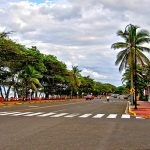FEDA launches “Saving the Mountains” program

Santo Domingo.- The Special Fund for Agricultural Development (FEDA) has launched the National Program to Promote Agroecological and Agroforestry Production “Saving the Mountains” in the mountainous regions of San Juan and Azua, a nationwide initiative aimed at preserving and recovering the forested areas of the Dominican Mountains.
The program, led by FEDA Director Hecmilio Galván, aims to promote agroforestry systems that include high-quality coffee, cocoa, and complementary fruit plants, thereby contributing to environmental sustainability and the well-being of rural communities. To achieve this goal, local coffee grower organizations in Bohechío, Padre Las Casas, and Guayabal received three training sessions on agroecology and a donation of 200,000 coffee seedlings to promote agroecological planting.
According to Galván, the “Saving the Mountains” Plan aims to preserve the forest cover of mountainous areas by promoting agroforestry systems that increase the income and quality of life of producers. The plan includes extensive training sessions for producers, associations, and agricultural cooperatives in agroecological practices and the diversification of agroecological crops.
In addition to training sessions, the plan also includes the donation of over 5 million coffee, cocoa, and avocado seedlings. The program will be implemented in coordination with various entities, including INDOCAFE, UTEPDA, Medio Ambiente, Sur Futuro, Plan Sierra, and others.
As part of the program’s launch, FEDA Director Galván delivered a check for RD$350,000 to the Federation of Coffee Growers of San Juan (FECADESJ) to cover the costs of organic certification and training on agroecological production.
Galván expressed gratitude to farmers for their efforts to preserve reforested watersheds and emphasized the importance of supporting sustainable production in the mountains. FEDA reaffirms its commitment to agricultural development in the Dominican Republic by promoting initiatives that strengthen sustainable production and improve the quality of life for rural communities.















